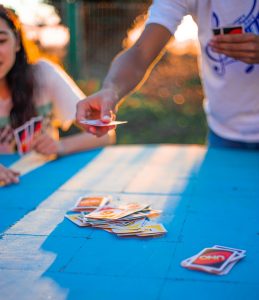Can learning be as fun as a game? If you ask students, they’ll probably answer “yes” immediately. If you ask teachers, many would say it’s possible, but not always easy to implement. On International Monopoly Day, one of the most iconic games in the world, we have an excellent opportunity to think about how games can contribute to learning and make the classroom experience more alive, dynamic, and engaging.
In a world where students are born with screens in front of their eyes and endless stimuli are constantly around them, traditional teaching methods are struggling to compete. Games offer a refreshing alternative, combining thinking, creativity, competition, and collaboration, all while creating deep and meaningful learning experiences. Studies in educational psychology show that learning through games improves memory, increases motivation, and helps develop higher-order thinking skills.
For example, a study published in 2019 found that students who used games in learning showed higher engagement during lessons and demonstrated better academic performance compared to those who learned through traditional methods alone. In addition, brain research suggests that games increase dopamine release in the brain — a neurotransmitter associated with pleasure and reinforcing learning.

Learning Through Monopoly
One of the main advantages of games in education is the opportunity to experience processes in a tangible and interactive way.
Take Monopoly, for example– beyond being a fun game, it provides a live lesson in basic economics, resource management, decision-making under uncertainty, and negotiation. Students don’t just learn about money and commerce; they experience it through action, deepening their understanding and connecting the learning to real life.
Imagine a math lesson where students need to calculate change or tax payments within the Monopoly game, or a social studies class where students discuss economic inequality based on experiences they’ve gained during the game. When the material being taught takes on a tangible form, students remember it better, as it’s connected to a personal and meaningful experience.
The Power of Games
But not only Monopoly– games, in general, are powerful educational tools. Studies show that games strengthen students’ social skills, improve their ability to work in groups, cope with failure, and develop strategic thinking.
Board games like Dixit can be used to develop creativity and written expression, Catan teaches strategy and resource management, and role-playing games allow students to experience moral dilemmas and practice decision-making in a simulated world before facing them in real life.
Even computer games and educational escape rooms, which have become popular in recent years, offer exciting learning experiences that combine out-of-the-box thinking, collaboration, and problem-solving.
When teachers thoughtfully integrate games into the learning process, they create an environment where students are active, exploring, experimenting, and experiencing learning through interest and joy.
How to Effectively Integrate Games into the Classroom
The question that always comes up during training sessions: “How can we effectively integrate games into the classroom?”
Firstly, it’s essential to match the game to the learning objectives. A game that’s unrelated to the lesson topic may become a distraction instead of a learning tool.
Secondly, the teacher should mediate the experience — explain the rules, ask thought-provoking questions, and guide students to draw conclusions from the game.
Thirdly, it’s recommended to incorporate games not just as rewards or breaks, but as an integral part of the lesson. For example, you could start a lesson by discussing strategies in the game, engage in a game-based activity, and conclude with a reflective summary where students share insights from the experience. In addition, encouraging students to invent their own games related to the lesson topic can be a creative and engaging way to deepen their understanding.
Even outside of class hours, you can offer game-based activities in learning clubs or school projects, which encourage students to learn from genuine desire and a sense of fulfillment.
In Conclusion
Games are not just a way to pass the time or entertain students — they are a powerful pedagogical tool that can transform learning. They boost motivation, improve thinking skills, and create a fun and experiential learning environment.
On this International Monopoly Day, it’s worth pausing to think: How can we make learning less one-dimensional and more game-like? How can we stimulate curiosity, creativity, and engagement in our students?
The answers to these questions can begin with a game — and lead to a real educational revolution.
This article highlights the power of games in the learning process, showing how they can engage students and make complex concepts more accessible. Would you like to explore any of these ideas further?




